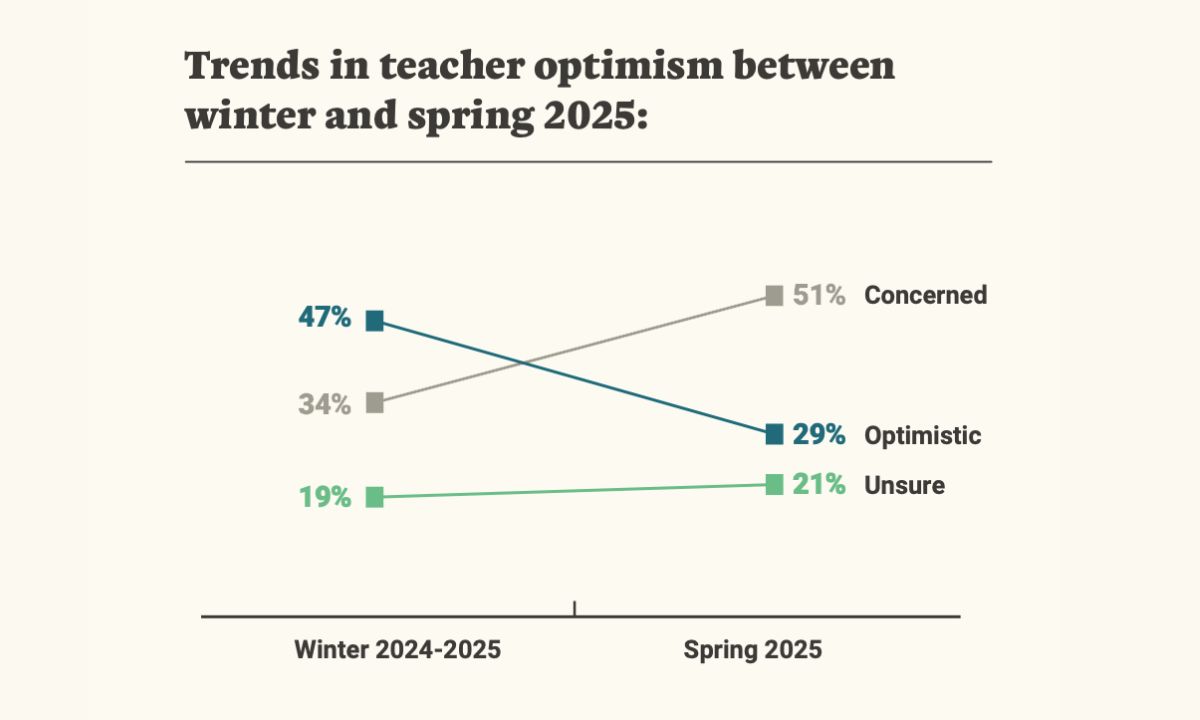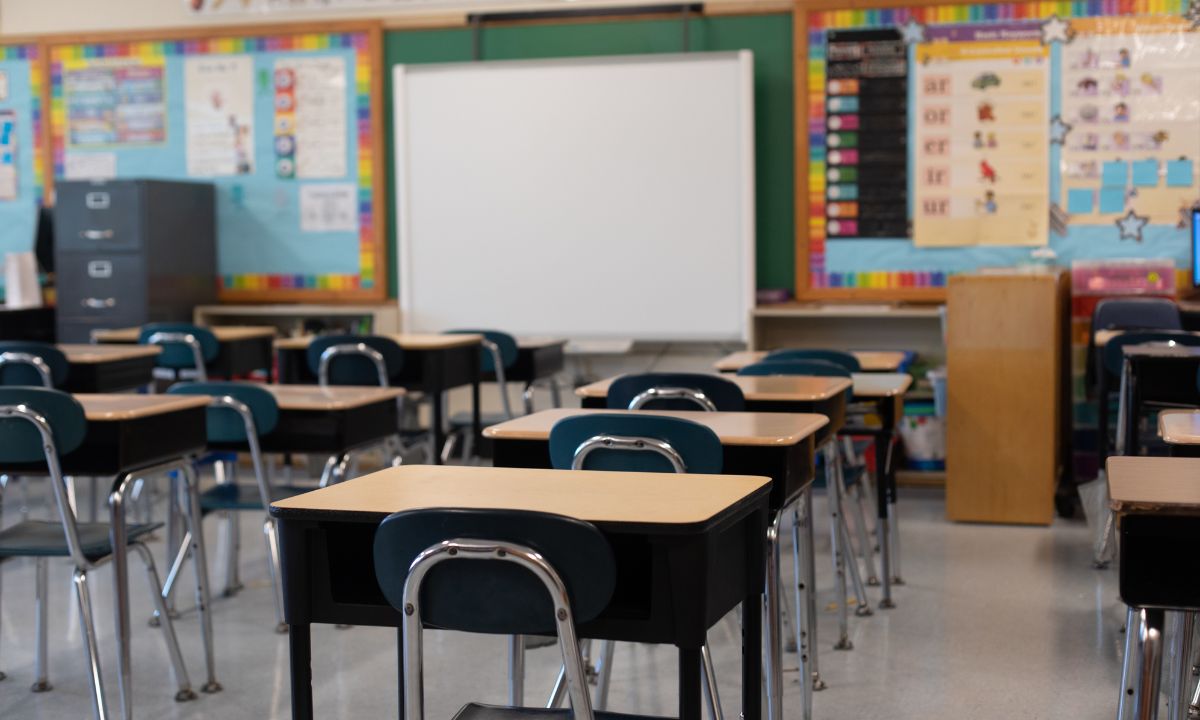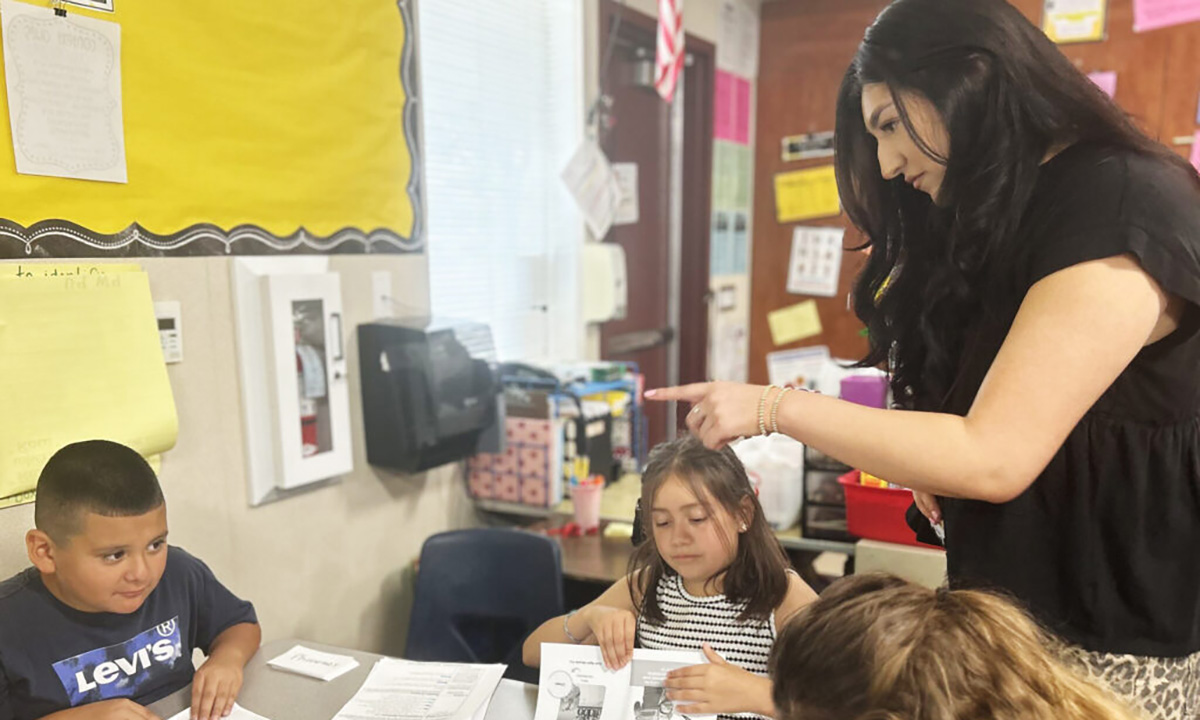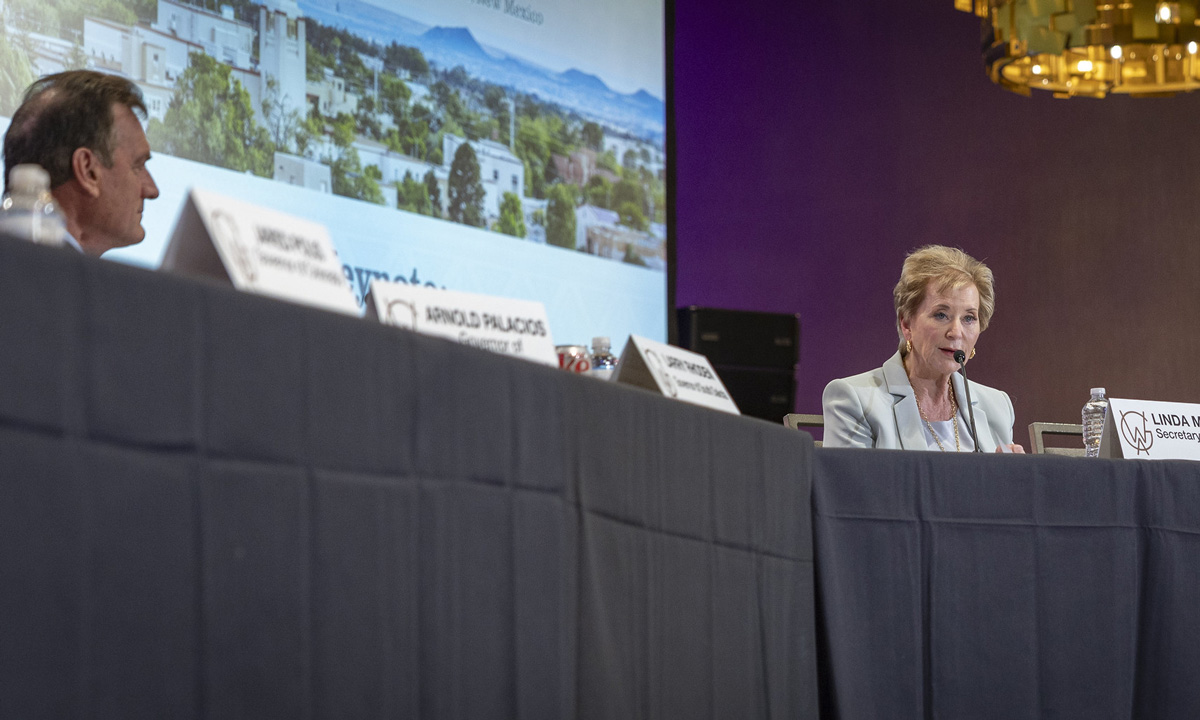In 2025, teaching is paradoxical. On the one hand, it’s a period of exciting new opportunities: innovative staffing methods, artificial intelligence, and evidence-based curricula have the potential to revolutionize both the profession and student learning. However, the Trump administration’s plans to destroy the US Department of Education pose a threat to the fundamental basis of our educational system.
One thing is certain: Teachers, who are the ones who know kids and classrooms the best, are still not included in choices made at the federal and local levels.
For this reason, we, along with 17 other public school teachers from across the nation, did something that neither the Trump administration nor Secretary of Education Linda McMahon has done: we surveyed educators about their opinions. We polled 1,000 public school teachers nationwide through Voices from the Classroom 2025, with additional oversamples of 300 teachers of color and 300 Gen Z teachers, to learn about their perspectives on the direction of education.
The message is unmistakable: educators oppose the education policies of the Trump administration. Just 29% are positive about the Education Department’s impact on schools, 51% are overtly concerned, and 70% are against its dissolution. Although there is still time to alter the course of public education, the window is getting smaller. It matters what we do next.
Many of these issues, of course, existed before the present government. Teacher satisfaction has been steadily declining, with only 19% of respondents saying they would recommend the job to others.
demonstrate the profound and systemic nature of the problems facing public education. The fact that educators have strong, workable answers that have the potential to revolutionize the field is what gives us optimism.
Teachers are hopeful about spending money on professional development and excellent teaching resources, particularly in the areas of math and reading. Compared to last year, 85% of respondents indicate their districts favor implementation. District and state leaders must maintain this pace to address ongoing learning loss in reading and math, though, as 81% of students continue to rely on content outside of the prescribed curriculum.
According to our poll, a large number of educators favor collaborative staffing approaches. Approaches like co-teaching and team teaching to improve professional collaboration are supported by nearly three-quarters of teachers. To better meet the requirements of kids, many also advocate for the increased employment of support personnel like paraprofessionals and tutors. These alternative teaching approaches, which reject the one-teacher, once-classroom model that has been in use for centuries, provide a clear and hopeful path toward better student outcomes at a time when the profession is still struggling with morale and retention.
Additionally, even though AI is still relatively young, its transformative potential in the classroom is rapidly gaining traction. In the last year, the percentage of educators who think AI can improve teaching and learning more than doubled, rising from 14% to 30%. However, only 48% of schools report having defined AI policies, which emphasizes the critical need for professional development.
When taken as a whole, the findings suggest a more comprehensive and significant conclusion: Teachers are prepared for change and are prepared to spearhead it. Teachers are embracing what works best for a modern classroom, whether that means implementing technology in the classroom, improving staffing, or revolutionizing the profession with high-quality instructional resources and matched professional supports.
However, leaders at all levels must listen, beginning at the top, in order to realize the future that educators foresee. Leaders like President Trump and Secretary McMahon need to start listening to teachers and allowing them to participate in classroom decision-making. Despite the paradoxical nature of teaching in 2025, one thing is certain: when educators are given a voice, we can rethink education rather than destroy it.








